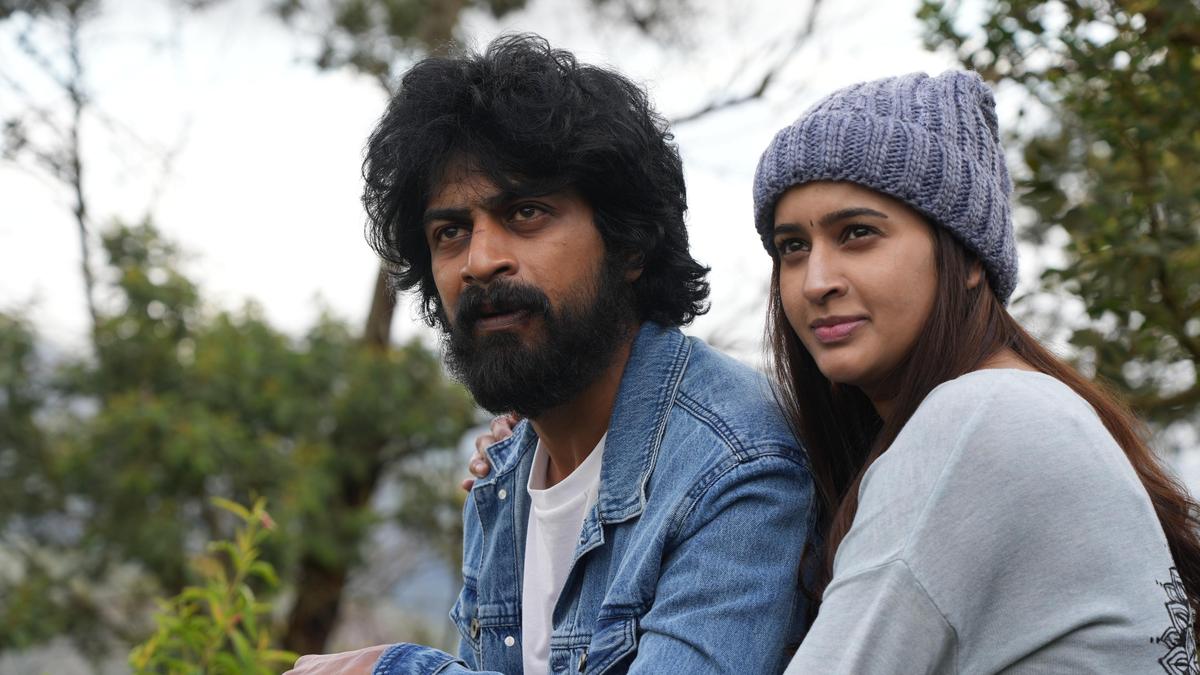
‘Rasavathi’ movie review: This predictable revenge drama dearly misses Santhakumar’s Midas touch
The Hindu
Despite decent performances by Arjun Das and Sujith Shankar and technical prowess, the film ends up as a concoction riddled with ineffective elements
How director Santhakumar titles his films have inarguably been fascinating. If Mouna Guru defined the lead character of his debut film, his sophomore, Magamuni, apart from elucidating its leads’ persona, was also a wordplay combining their names. In his latest film, Rasavathi (The Alchemist), the title splendidly symbolises its overarching theme while also establishing the actions of its protagonist.
In Rasavathi, Santhakumar pits a soft-spoken and astute Siddha doctor Sadasivapandian (Arjun Das) with Kodaikanal’s new inspector Parasuraj (Sujith Shankar) who suffers from unresolved psychiatric illness. Also new in town is a resort’s manager Surya (Tanya Ravichandran) who, unsurprisingly, makes a bond with Sada. Perturbed by seeing the happy couple, Parasu goes out of his way to try wreaking havoc in their relationship. While it initially looks like the work of a narcissist being unhappy seeing others happy, there’s more to it than meets the eye.
What’s fascinating about Rasavathi — from a writing perspective — is how all its primary cast members have a past. Like Alchemy — the medieval chemical science and speculative philosophy that aims to achieve the transmutation of base metals into gold — they all try to become a better version of themselves. After a traumatic past scarred him both physically and emotionally, Sada is in a better place, both figuratively and literally, trying to use the knowledge he has gained in the process for the betterment of humanity. On the flip side, Parasu, someone who grew up with a troubled childhood, is yet to process his suppressed pain which often flares out in an undesirable manner.
The film spends the majority of its runtime establishing how the good guy is good and the bad guy is... bad. Sada treats an elderly person’s feet while Parasu orders his shoelace to be tightened by his subordinate. Sada saves people and Parasu kills them. Sada relieves pain and Parasu inflicts it either emotionally, at home, or physically, at work. Sada is an animal lover and Parasu finds pleasure in torturing trapped rodents; you get the drift. Unfortunately, this is all the film offers throughout the first half.
Throw into the equation an equally traumatised Surya whose character or her troubled past offers no heft to the film. But that’s nothing compared to how underutilised secondary characters played by Ramya and GM Sundar are; the former’s entire trope exists merely for comical purposes that are anything but funny. The film picks pace in the second half when a lot of knots get unravelled, but despite an intriguing conflict and introducing us to Reshma Venkatesh (who does a lovely job in her debut role), the set-up turns ineffective. What follows is a predictable climax.
Despite the film as a whole not turning out to be satisfactory, certain moments from it stand out, and Rasavathi expects us to find respite when we make the effort to read between its lines; like for example, the albino cobra that comes up twice in the film could probably signify the god Shiva who is often mentioned concerning Siddha medication. The dialogues, though giving us the feel of reading verses from a novel, hit the mark often. Sada, in a scene, compares the pathos of watching felled trees transported on a truck with the aftermath of an elephant killed by a train. The filmmaker also sneaks in references to his previous films and even takes a dig at critics and bibliophiles. What makes this otherwise conventional film are the performances of Arjun Das and Sujith Shankar, along with Thaman’s effective score and fantastic shots by Saravanan Ilavarasu.
To call the film’s pacing slow is an understatement and it’s understandable given the wafer-thin plot, which the director tries to accentuate by adding more characters that in turn lead to more scenes. The film also rakes in the need for possibly every trigger warning from abuse to suicide. But despite multiple sub-plots, the film does not necessarily break any grounds with the age-old revenge trope. Someone in my screening compared the film with Dhill and that’s a comparison difficult to argue against. For a film full of characters with a past, the underwhelming Rasavathi ends up as a product of the past that evokes no reaction.











